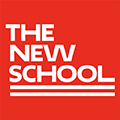WHAT: |
The Center for Public Scholarship at The New School presents the 7th Public Voices lecture series, a discussion of the ways in which higher education is being shaped and reshaped by politics.
The discussion takes place in the midst of a major transition both inside and outside the classroom. Demand for college degrees in the modern workplace is growing, while costs to attend college are rising. This has led students in the United States to take out loans totaling more than $1 trillion. The result of this socioeconomic burden is the steady widening of the income gap, undercutting the benefits these degrees are meant to provide.
And it’s not just the costs that are changing, but the classrooms, faculty and administration. Massive open online courses (MOOCs) were thought to be “disruptors” to the traditional university model, providing free education to the masses. However, studies, including one from MIT, reveal that virtual classrooms aren’t without problems, including high attrition rates and cheating.
In addition, many universities have increasingly relied on adjuncts to teach their classes as a cost-saving measure. However, the adjuncts are often underpaid, overworked and without job stability. The increase in the hiring of adjuncts has coincided with an increase in the hiring of administrations--a clear sign of the corporatization of the university.
Other issues facing higher education include the greatly increased reliance on quantified measures of evaluation and the now prevalent view that the number of graduates who land jobs is the best indicator of an institution's merit. |
WHO: |
Andrew Delbanco (Columbia University),
whose recent article in The New York Review of Books, "Our Universities: The Outrageous Reality," addresses the rising cost of higher education and the inequalities arising from it.
David Bromwich (Yale University), whose
recent piece in The New York Review of Books, “Trapped in the Virtual Classroom,” criticizes the enthusiasm for MOOCs, and its effects on the quality of education.
Richard Kahlenberg, a senior fellow at the Century Foundation who specializes in the issue of inequality and educational access.
Marina Warner (Birkbeck, University of London),
whose recent article in the London Review of Books examines the struggles universities face when moving towards a for-profit model.
Kenneth Prewitt (Columbia University), who will serve as moderator of the discussion. |
WHEN |
Tuesday, Oct. 13, 6:15-8:15 p.m. |
WHERE |
The New School’s Theresa Lang Community and Student Center, 2nd Floor, 55 W. 13th St., New York
|
| TICKETS |
The event is free, but members of the media must rsvp with Scott Gargan at [email protected] or 212.229.5667 x 3794. |
Founded in 1919, The New School was born out of
principles of academic freedom, tolerance, and experimentation.
Committed to social engagement, The New School today remains in the
vanguard of innovation in higher education, with more than 10,000
undergraduate and graduate students challenging the status quo in design
and the social sciences, liberal arts, management, the arts, and media.
The New School welcomes thousands of adult learners annually for
continuing education courses and calendar of lectures, screenings,
readings, and concerts. Through its online learning portals, research
institutes, and international partnerships, The New School maintains a
global presence. Learn more at www.newschool.edu.
|
